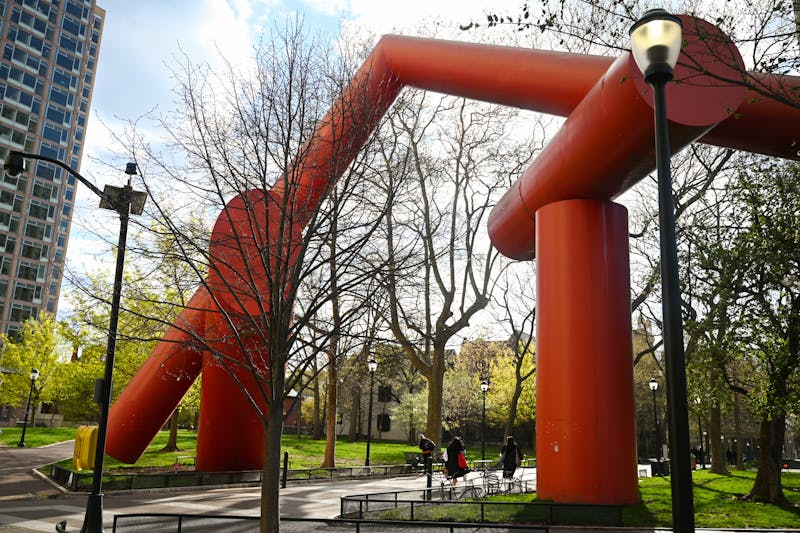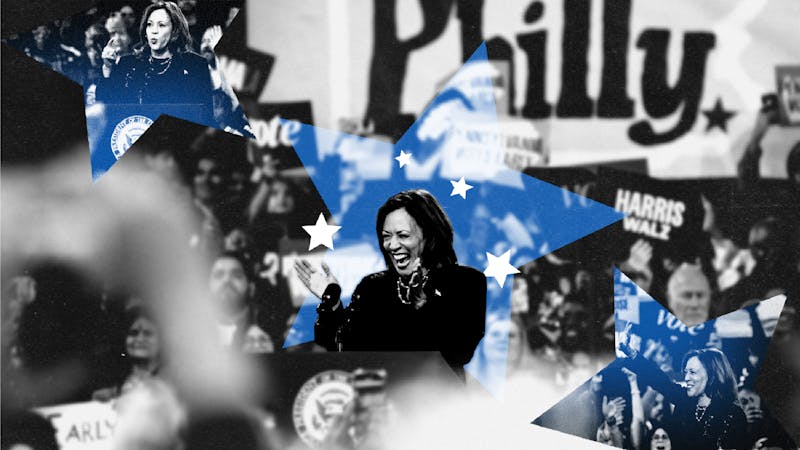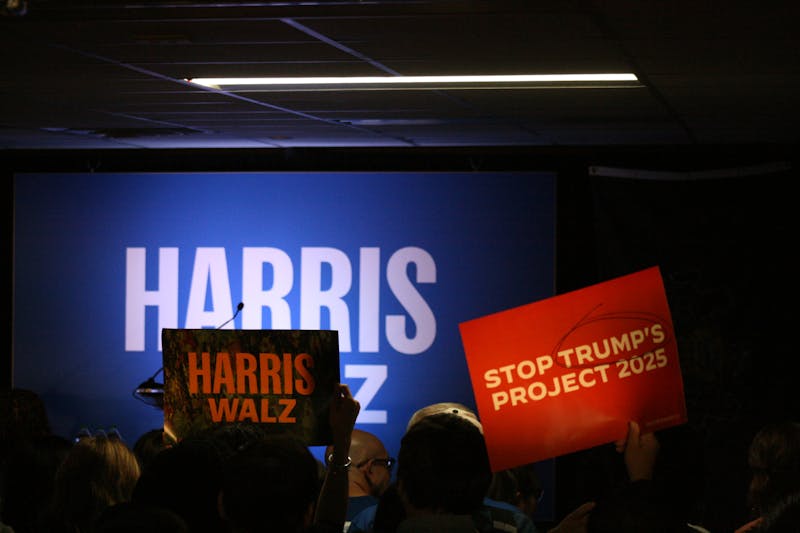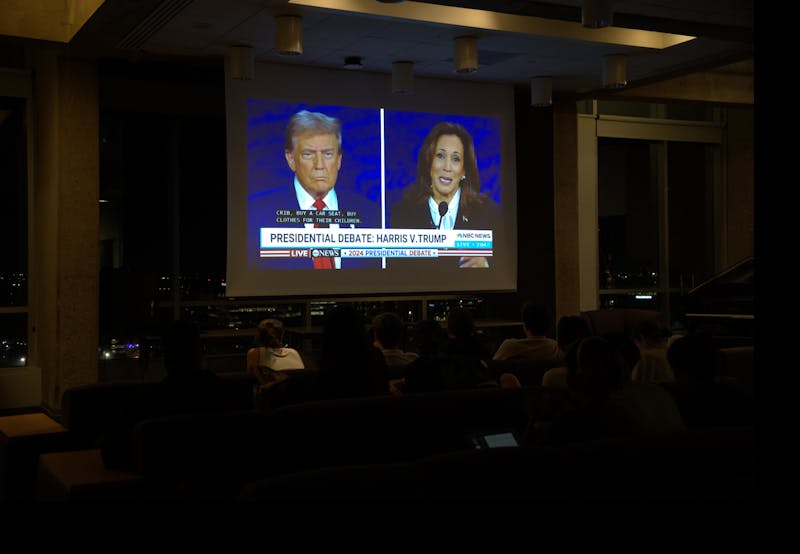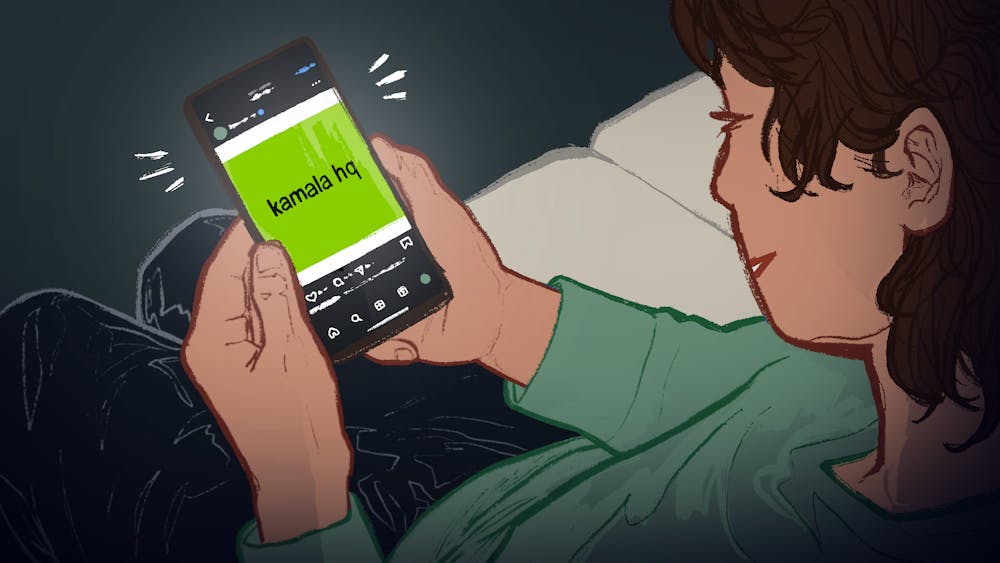
As Vice President Kamala Harris geared up for Election Day, a new wave of enthusiasm surged through the “KHive,” but it’s the viral memes that may be capturing the attention of Generation Z voters more than her political platform itself.
To connect with young voters, Harris’ presidential campaign is extending their reach on popular social media platforms for Gen Z such as TikTok. Since joining the app, viral memes about Harris, like her famous coconut tree line or the vote of confidence from artist Charlie XCX proclaiming “Kamala IS brat,” have boosted her overall popularity among Gen Z.
The Harris fandom is even dubbed as the KHive, a spinoff from artist Beyonce’s fandom called the Beyhive, which speaks to the equivalence in stardom between the vice president and an influential cultural figure.
These are just the honorable mentions, but Harris’ team is embracing the wholesale "memeification" of her campaign, albeit, strategically so. After the brat proclamation from XCX, Kamala HQ changed their TikTok page to neon green and played into what they saw us respond to: the memes.
It’s an incredibly smart way to humanize herself to young voters, and it appears to be working. When approximately half of TikTok users between the ages of 18-29 use the app to keep up with politics and political issues, Harris’ social media presence allows for a substantial influence on Gen Z. In fact, 34% of individuals who came across Harris-related memes reported that their opinions were positively affected by them.
However, although the meme campaign is effective, in the sense that it is securing the Gen Z vote, it is not effective in politically engaging us. We shouldn’t be voting for Harris because it's trendy; we should choose the presidential candidate whose views match our own on the issues that matter to us. And as captivating as the memes are, they ultimately distract from those positions.
If we base our political preferences on who algorithmically wins on our "For You" pages, we will all be completely dumbfounded by the initiatives we see in office over the course of the next four years. Social media shapes and reflects the way its users think, and basing our political preferences on this dynamic echo chamber will be detrimental not only to the leadership of our country but also to our ability to think critically.
We will only learn whatever our algorithm feeds us; and if that's Kamala HQ TikToks clipping out-of-pocket quotes from 1968 Wharton graduate and former President Donald Trump or Harris revealing her favorite curse word, then we definitely need to look past social media as our only source of information. Instead of glorifying either presidential candidate, we should be critical. Let us all look up from our phones and craft a more nuanced thought as to our reasoning for voting for whichever candidate.
And a portion of voters under 30 are doing this. Approximately 10% of Gen Z aren’t planning to vote, and this is partially due to those who are deeply critical of the Biden-Harris administration’s response to the Israel-Hamas war who are dissuaded from voting for Harris, or at all, in the upcoming election. This subset of Gen Z, who is the target audience of Harris’ meme campaign, is more concerned about her position regarding Gaza than her social media presence. I am calling on all of us to do the same: be politically informed enough to decide how, or even if, we will vote based on issues we care about.
Let me be clear, I am not criticizing those who buy into Kamala HQ memes, I’ve probably saved a few of her TikToks myself, but this example of young voters unwilling to compromise their beliefs for her growing popularity is the key difference between political engagement and voting because it is trendy.
In all honesty, the "memeification" of politics was not all that surprising, but should it be the reason we cast a vote one way or another? Absolutely not. I am willing to credit social media for encouraging Gen Z to get out and vote because it certainly is an effective way of targeting the younger audience. But that means it is especially on us, the young voters who are targeted by these meme campaigns, to be aware of the policies and positions we are voting for.
Therefore, I implore us all to think a bit deeper than what our for you page tells us. Harris being "brat" may be a current trend, but whoever is in office and the policies they impose will last much longer.
ASHTI TIWARI is a College sophomore studying philosophy, politics, and economics from Corning, New York. Her email address is ashti@sas.upenn.edu.
The Daily Pennsylvanian is an independent, student-run newspaper. Please consider making a donation to support the coverage that shapes the University. Your generosity ensures a future of strong journalism at Penn.
Donate






